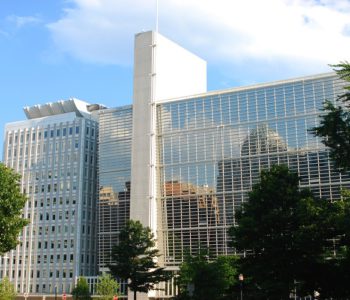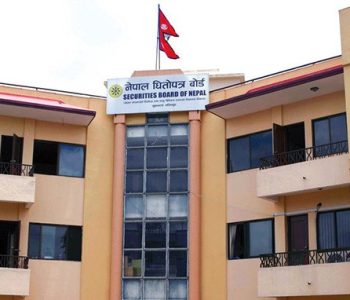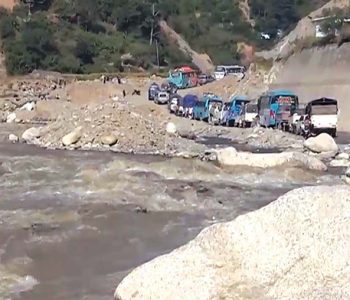Nepal to send skilled workers to South Korea under E-7 visa scheme

KATHMANDU: The Ministry of Labor, Employment, and Social Security is gearing up to send skilled workers to South Korea under the E-7 visa system through manpower companies. The Ministry has already sent a revised draft of the “Guidelines on Sending Skilled Workers to South Korea, 2080” to the Ministry of Foreign Affairs and the Ministry of Law for feedback.
Minister Sharat Singh Bhandari stated that the process has been initiated to facilitate the institutional deployment of skilled workers, who previously sought employment in South Korea individually. “There is a significant demand for skilled labor in South Korea. Although some Nepali workers are already traveling there under the E-7 visa system, it is necessary to organize and make the process more transparent,” Minister Bhandari explained. He added, “The guidelines have been prepared with the involvement of the private sector, and we have sent them to the Foreign and Law Ministries for suggestions.”
The Ministry plans to send the revised guidelines to South Korea after receiving feedback from these ministries. Minister Bhandari clarified that the system will only be implemented if South Korean authorities respond positively. The issue was recently discussed in a meeting between Minister Bhandari and the South Korean Ambassador to Nepal.
South Korea has been hiring unskilled labor from Nepal under the Employment Permit System (EPS) since 2007, utilizing E-9 visas for jobs in the production and agriculture sectors. Despite over 100,000 Nepalis sitting for the language test every year, only a limited number are selected for employment, prompting the government to explore opportunities beyond the EPS system.
For 2024, South Korea has allocated approximately 24,039 slots under the EPS system, including 9,728 positions in production, 9,672 in agriculture, 3,885 in the shipbuilding sector, and 754 in the Construction-Based Test (CBT) category. Over the past ten months, 5,514 Nepali workers have already signed contracts to work in South Korea, though more than 200,000 applicants remain in the selection pool.
Concerns have been raised that the E-7 visa scheme may pose a threat to the EPS agreement between Nepal and South Korea. However, Minister Bhandari assured that the deployment of skilled workers under the E-7 visa will not impact the flow of unskilled labor under the E-9 visa system. “For 15 years, South Korea has only been recruiting unskilled labor from Nepal. Now, there is a large demand for skilled workers from Korean employers. We should seize this opportunity for Nepali workers,” he said. Bhandari emphasized that the two systems are managed by separate ministries and will remain distinct.
An official from South Korea’s Human Resources Development Service, which oversees E-9 visa workers, confirmed that the organization will not handle E-7 visa workers. “We only facilitate unskilled workers under E-9. The E-7 visa is managed by a different authority,” the official stated.
Under the guidelines, only manpower companies that meet the operational standards for the E-7 visa system will be allowed to send workers to South Korea. Manpower agencies must have their own training centers that meet language and skill standards, or must have a contractual agreement to fully utilize an external training facility. Additionally, the agencies must have agreements with legally registered associations in South Korea to ensure the workers’ welfare, with the provision that no fees will be charged to the manpower agencies by the South Korean associations.
According to the guidelines, Nepali citizens wishing to work in South Korea under the E-7 visa must pass Korean language and professional skill tests conducted by certified institutions. The Ministry is yet to determine the cost for selected workers, though employers will be responsible for expenses such as airfare, insurance, health checks, and social security contributions.
Minister Bhandari assured that the cost burden on workers under the E-7 visa will not exceed the current expense of approximately NPR 120,000 incurred by workers traveling under the EPS system. South Korean employers are expected to cover the costs of training and language courses conducted by institutions in Nepal, in line with their recruitment requirements.
To streamline the process, the Ministry plans to establish a separate branch under the Department of Foreign Employment, which will oversee all facilitation efforts for workers heading to South Korea. The Nepali Embassy in South Korea will also play a role in verifying and forwarding demand letters within 15 days of receipt, or the employers will be allowed to send them directly to the Department for verification.
Selected workers will sign employment contracts that detail wages, insurance, overtime pay, leave, social security benefits, and other welfare provisions. These contracts will be scrutinized by the Department to ensure compliance with the established guidelines.
Meanwhile, South Korean trade unions are campaigning to abolish the EPS system, citing the excessive power employers have over migrant workers. Uday Rai, President of the Migrant Trade Union (MTU), highlighted that while the language-based selection process under the EPS is transparent, the control employers have over workers creates conditions for exploitation. “The process of selecting workers from Nepal is transparent, but once they arrive in South Korea, the employers have too much authority, which can lead to abuse,” Rai commented.
As the Labor Ministry finalizes its efforts to facilitate skilled migration, experts stress the importance of protecting the well-established EPS model. Labor administration expert Purna Chandra Bhattarai emphasized, “It is a great opportunity for skilled workers to go directly to South Korea. However, the government must ensure that the skilled labor deployment does not undermine the EPS system, which is the most transparent recruitment model we have.”













Im intrested for work i believe my hard work
How to apply
I working
I am interasted
I am agricuter technition
I am interested
How to apply?
i am interested
How to apply
I’m heard work you should believe me. “I am a dedicated and hardworking individual with 5 years of experience in the field of welding. I am confident in my ability to work efficiently and effectively, and I am eager to contribute my skills to your team. would appreciate the opportunity to be considered for this position.”
“I am a dedicated and hardworking individual with 5 years of experience in the field of welding. I am confident in my ability to work efficiently and effectively, and I am eager to contribute my skills to your team. would appreciate the opportunity to be considered for this position.”
How to apply
Hlo I want to know about this e-7, and i want to work there plz some body help me.
“I am a dedicated and hardworking individual with 5 years of experience in the field of welding.
I’m experience in welding.
I need working visa plz fillip opter
iam interested for e7 visa i know Korean language now iam work in malaysia mechanical engineering technician so how to apply
I am also interested in work visa
I am interested in work visa
When it will start to send skilled worker ?
In s korea,Is there any age createarea or what kind of work exeprance does have to go korea?
How to apply
I need Woking visa